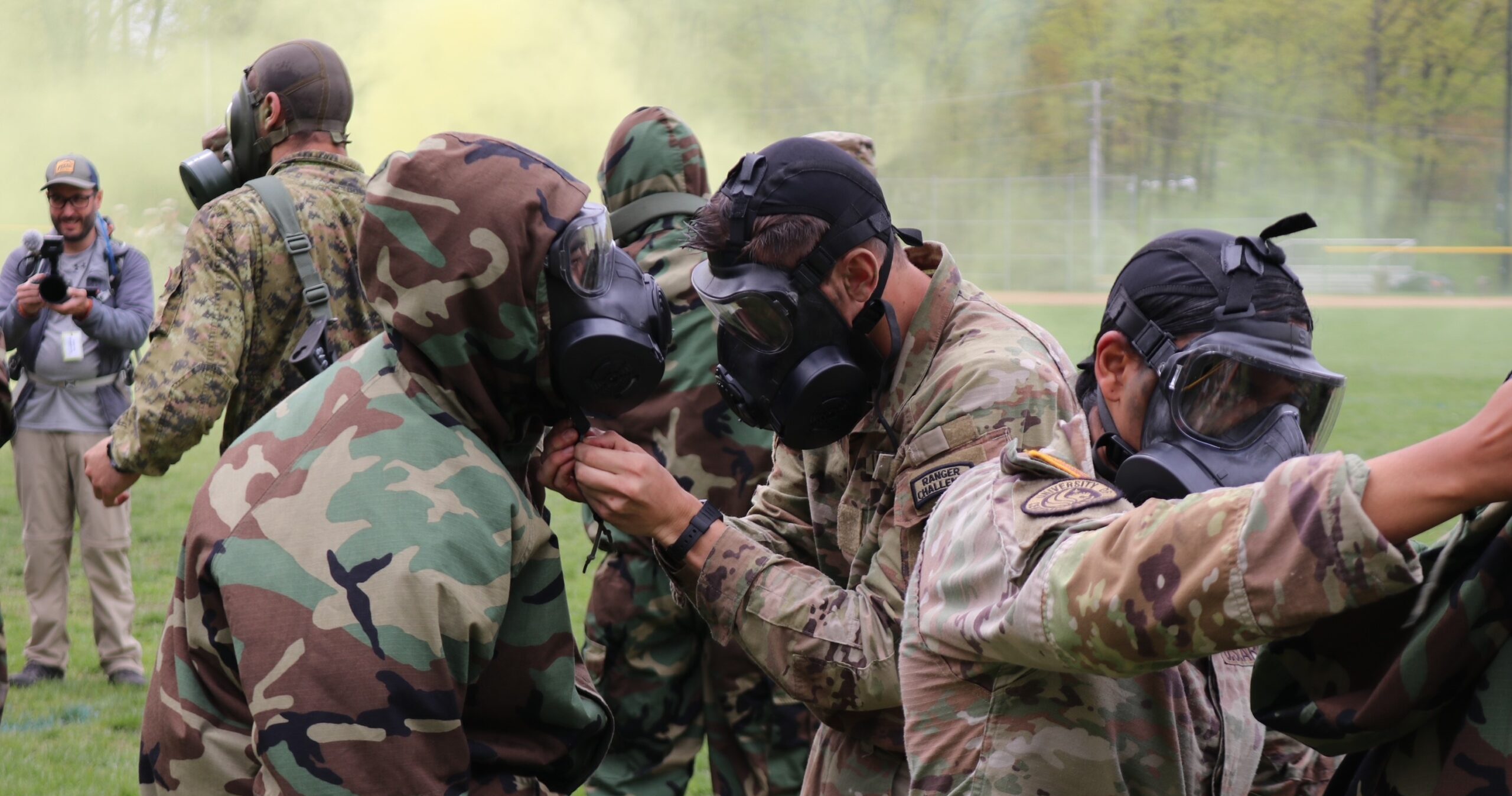FAQs
Deciding to Enroll and Scholarships
Is enrolling in Army ROTC the same as joining the Army? Once a student starts taking ROTC courses, is he/she obligated to join the Army?
Enrolling in Army ROTC is not, strictly speaking, joining the Army. You will not be sent to boot camp or be eligible for activations or deployments. However, the primary purpose of the Army ROTC program is to produce Army Officers, so to complete the program or receive a scholarship, you must agree to serve as an Officer in the Army after graduation. Enrolling in the ROTC Basic Course (the first two years of college) does NOT obligate you to serve unless you have also received a scholarship.
What is my Army service obligation to pay back any scholarship benefits or for enrollment in the ROTC Advanced Course?
Scholarship winners and Cadets who enroll in the ROTC Advanced Course must serve for 8 years after graduation. That service obligation can be completed in 2 ways. Option 1 is to serve in the Active Duty Army for 4 years plus another 4 years in the Inactive Ready Reserve (IRR). The IRR is comprised of trained Army soldiers who can be called back to active duty in the event of a national crisis. It does not involve any daily requirement and soldiers on the IRR have no limitations on their civilian lives. Option 2 is to serve 8 years in the National Guard or Army Reserve. Cadets must compete to serve on active duty. If Cadets choose to serve in the National Guard or Army Reserve they are guaranteed their choice.
What good is Army ROTC for a career outside of the Army?
Army ROTC is one of the only college programs that teaches leadership. This training is invaluable for any career that involves leading, managing and motivating people or fostering teamwork. Young Army Officers are typically responsible for hundreds of Soldiers and millions of dollars in equipment; this kind of management experience can be very attractive for post-Army employers.
Why should I choose Army ROTC over a different branch’s ROTC?
We encourage and value all forms of service, especially in our sister services! However, when choosing your form of service, consider that the Army offers a wider range of career opportunities, in more places around the world than any other branch of the U.S. Military. If you are a UCF student and interested in other services, UCF also offers Air Force ROTC.
Academics and Lifestyle
How will being an Army ROTC Cadet affect my daily life? Do Cadets experience normal college life and activities?
Army ROTC Cadets have the same lifestyles and academic schedules as any other college students. They join fraternities and sororities, participate in varsity team and individual sports, and take part in community service projects. There are two intensive Army ROTC courses that take place in Fort Knox, KY during the summer:
- Basic Camp—This four-week summer course at Fort Knox, Kentucky is ONLY for students who enroll in Army ROTC without having taken the first two years of military science classes.
- Advanced Camp—All Cadets who enter the Advanced Course must attend this five-week summer course at Fort Knox, KY between their junior and senior years.
What are Army ROTC courses like? How will the class work help me? Will ROTC classes interfere with my other studies?
Army ROTC classes involve one elective class and one lab per semester. Military Science classes are standard college classes that fit into a normal academic schedule. These courses can help students with personal and academic decision making while giving them the tools to exercise leadership in college life, even before graduating and becoming Officers. Leadership labs are an opportunity for Cadets to practice their skills in a field setting and prepare them to be successful at Advanced Camp.
Are all college majors compatible with Army ROTC?
Army ROTC Cadets are allowed to major in nearly all academic areas. Cadets can switch their majors as often as they want up until the point that they contract into the program. Once Cadets sign a contract with Army ROTC, they must receive prior approval from the Professor of Military Science to switch their major.
After Graduation
What are the chances that I will be deployed in the Army?
It depends on the Army branch the Cadet chooses and the unit to which he/she is assigned. However, Army missions and challenges are always changing, so there’s no way to know in advance which specialties and units will be needed where. All Soldiers in the Army, Army Reserve, and National Guard face the possibility of activation or deployment at some point during their careers. Officers are specifically trained to make the right decisions so that missions can be carried out safely and successfully.
What is the typical career path for an Army Officer? What career fields are available?
Army ROTC graduates are commissioned as U.S. Army Second Lieutenants. Lieutenants then receive specialized training in one of 17 different Army branches. During their Army careers, officers receive regular professional training as they advance through the ranks, and they have many opportunities for advanced leadership positions and post-graduate education.
Can I go into the Army Reserve or National Guard after graduation instead of the regular Army?
Yes. Cadets may choose to serve part time in the U.S. Army Reserve or Army National Guard while pursuing a civilian career or further education.
What kind of salary and benefits will I earn as a commissioned Army Officer?
